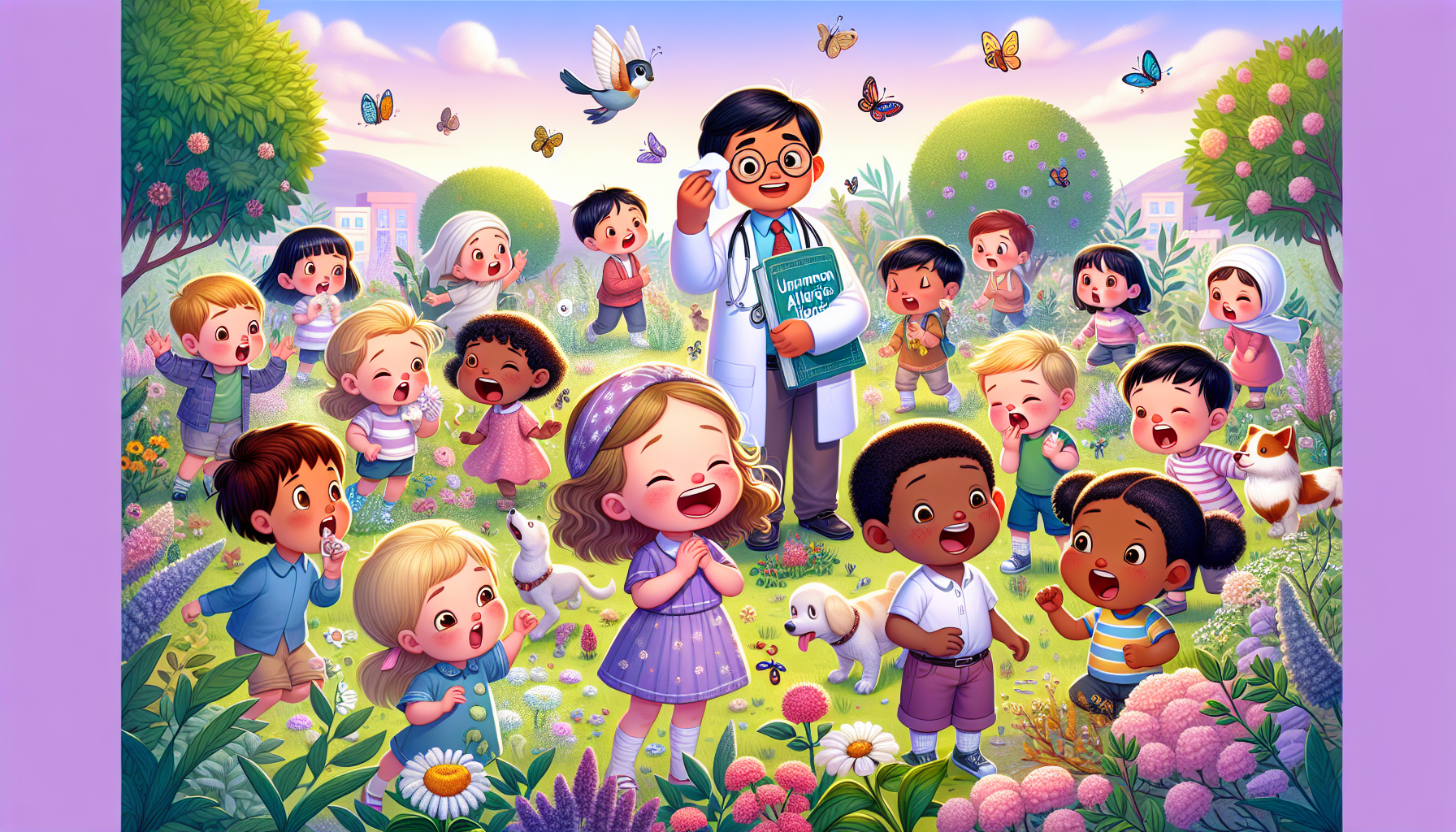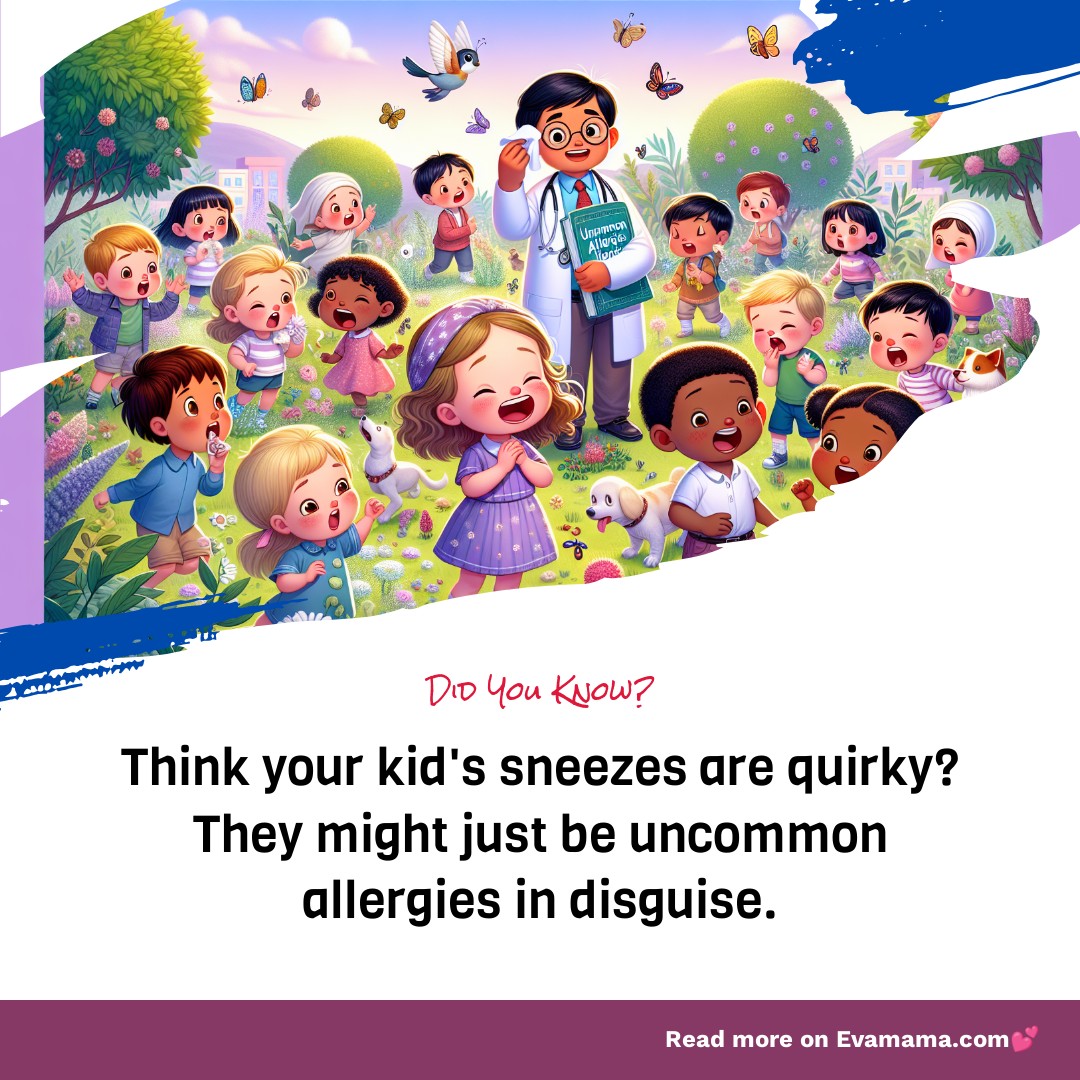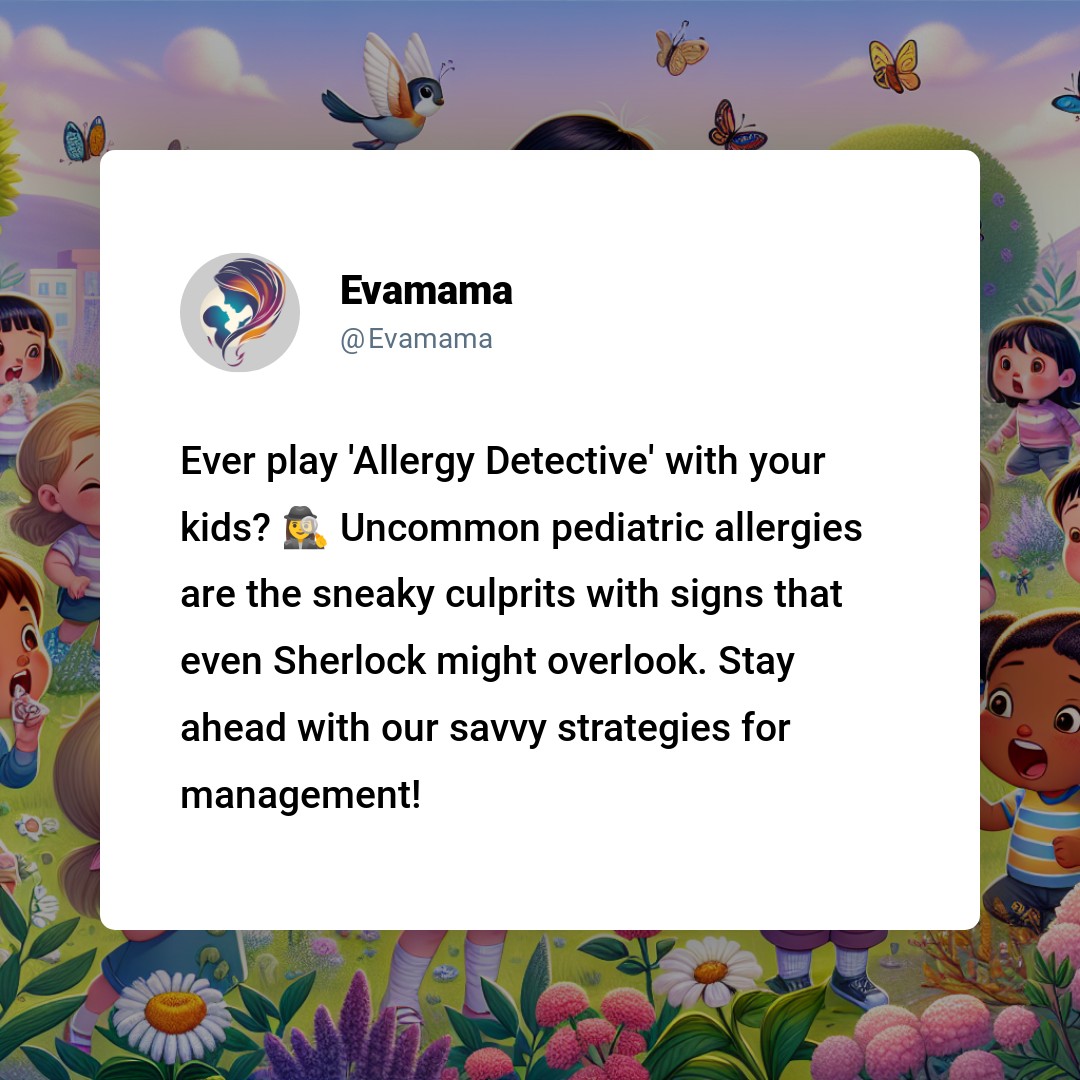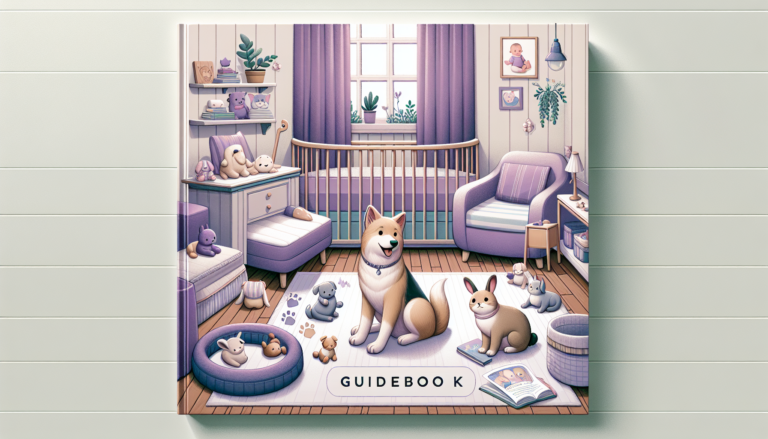Uncommon Pediatric Allergies: Spot Signs & Manage Smartly, Moms!
Uncommon pediatric allergies can be perplexing, often presenting signs that are easy to miss. Imagine your little one is plagued by a persistent cough or an odd rash that just won’t budge—could it be an allergy that’s not on the usual suspect list?
In the world of sniffles and itchy skin, it’s the not-so-common allergies that leave even the most vigilant moms second-guessing. I’ve seen the relief in a parent’s eyes when the mystery behind their child’s discomfort is finally solved.
Let’s navigate these murky waters together. With a blend of empathy and evidence, we’ll uncover the subtle signs and explore strategies to manage your child’s uncommon allergies. Because when it comes to our kids, understanding what ails them is half the battle won.

Uncommon Pediatric Allergies: Decoding the Subtle Signs

The Overlooked Respiratory Clues: More Than Just a Common Cold
You’ve probably seen your child with a runny nose or a cough and thought, "Oh, it’s just a cold." But what if it’s not? Uncommon pediatric allergies can masquerade as persistent colds. If your child has a ‘cold’ that doesn’t seem to go away or occurs at the same time each year, it might be an allergy. Unlike the common cold, which usually resolves within two weeks, allergy symptoms linger or have a seasonal pattern.
Skin Signals: Rashes in Unusual Places
Eczema is a well-known skin allergy in children, but there are other skin reactions that are less obvious. Have you noticed rashes in the folds of your child’s elbows or knees, or perhaps tiny bumps on their cheeks or arms that don’t seem to be related to any known irritants? These could be signs of an uncommon allergy. The skin can tell us a lot about what’s happening inside the body, and these subtle changes warrant a closer look.
Digestive Disturbances: When Tummy Troubles Aren’t Just About Diet
It’s easy to attribute a child’s stomachache to something they ate, but when these symptoms are recurrent or accompanied by other signs like nausea, diarrhea, or even constipation, it could be an allergic reaction. Uncommon food allergies or sensitivities often present with digestive symptoms that are easily mistaken for other common gastrointestinal issues.
Behavioral Changes: The Allergy-Anxiety Connection
Now, this might surprise you. Allergies can affect your child’s behavior. If you notice your child is suddenly more irritable, restless, or even has difficulty concentrating, it could be an allergic reaction. These behavioral changes are often overlooked as signs of allergies, but they can be a child’s way of expressing discomfort when they can’t articulate what they’re feeling physically.
The Table of Telltales: A Quick Reference Guide
| Symptom | Common Allergy Sign | Uncommon Allergy Sign |
|---|---|---|
| Respiratory | Sneezing, Runny Nose | Persistent ‘cold’, Seasonal patterns |
| Skin | Eczema, Hives | Rashes in skin folds, Tiny bumps |
| Digestive | – | Recurrent stomachaches, Unexplained nausea |
| Behavioral | – | Irritability, Restlessness, Attention issues |
When to Seek Help: Trusting Your Parental Instincts
You know your child better than anyone else. If you’re noticing these subtle signs and they’re not adding up to the usual suspects, it might be time to consult with a healthcare professional. Early detection of uncommon allergies can make a significant difference in your child’s quality of life. Don’t hesitate to reach out for a second opinion if your gut tells you something’s not right.
Partnering with Professionals: The Allergy Detective Work
To run faster, you have to train, and to understand your child’s allergies, you have to partner with the right professionals. An allergist can perform specific tests to pinpoint the exact cause of your child’s symptoms. They can also guide you on management strategies tailored to your child’s needs, ensuring they can thrive despite their allergies.
Crafting an Allergy-Safe Haven: Practical Steps for Managing Uncommon Pediatric Allergies

Identifying Uncommon Allergies: The First Step to Safety
You’ve noticed your child’s unusual symptoms, and it’s nothing like the typical hay fever. Uncommon pediatric allergies can be baffling, but identifying them is key. Start with a visit to an allergist for full testing. They might use skin prick tests or blood tests to evaluate the culprits.
Allergy-Proofing Your Home: A Safe Zone for Your Child
To create an allergy-safe home, scrutinize every corner. If dust mites are the issue, encase mattresses and pillows in allergen-proof covers. For food allergies, establish a ‘safe snacks’ zone, free from cross-contamination risks. And don’t forget air quality-HEPA filters can be a breath of fresh air for those with airborne allergies.
School and Caregivers: Your Allies in Allergy Management
Liaising with schools and caregivers is non-negotiable. Draft an ‘Allergy Action Plan’ detailing emergency procedures and safe foods. Ensure everyone who interacts with your child knows how to use an epinephrine auto-injector if needed. It’s about building a community of care around your child.
Dietary Detective Work: The Elimination and Reintroduction Game
When it comes to food allergies, think like a detective. Eliminate suspect foods from your child’s diet and watch for improvements. Slowly reintroduce them, one at a time, to pinpoint the problem. Keep a food diary to track reactions-it’s a simple tool that can yield invaluable insights.
Immunotherapy: A Glimmer of Hope for Increasing Tolerance
Immunotherapy can be a game-changer. This treatment gradually increases your child’s tolerance to allergens. It’s not a quick fix, but for some, it’s a path to fewer restrictions. Discuss with your allergist if this cutting-edge approach could be suitable for your child.
The Role of Regenerative Foods in Allergy Management
You’re what you eat-and so is your immune system. Consider regenerative and organic foods, like those from White Leaf Provisions and Happy Family Organics. These brands focus on soil health, which can lead to more nutrient-dense foods. It’s a proactive step towards Most importantly wellness, including allergy management.
When to Seek Medical Advice: Don’t Hesitate
If your child’s symptoms escalate or new ones emerge, seek medical advice without delay. Allergies can be unpredictable, and what seems like a minor issue can escalate quickly. Your allergist is your partner in this journey-keep them in the loop.
Table: Allergy Management at a Glance
| Allergy Type | Home Management | School/Caregiver Strategy | Medical Intervention |
|---|---|---|---|
| Food | Safe snacks zone, food diary | Allergy Action Plan, training on epinephrine use | Elimination diet, possible immunotherapy |
| Dust Mites | Allergen-proof covers, HEPA filters | Regular cleaning protocols, allergen minimization | Allergy testing, possible immunotherapy |
| Airborne | Air purifiers, regular cleaning | Awareness of pollen counts, indoor air quality control | Allergy testing, antihistamines |
Managing your child’s uncommon pediatric allergies is a journey. It’s about creating a safe environment, educating those around your child, and staying vigilant. With the right strategies, you can navigate this path with confidence.




